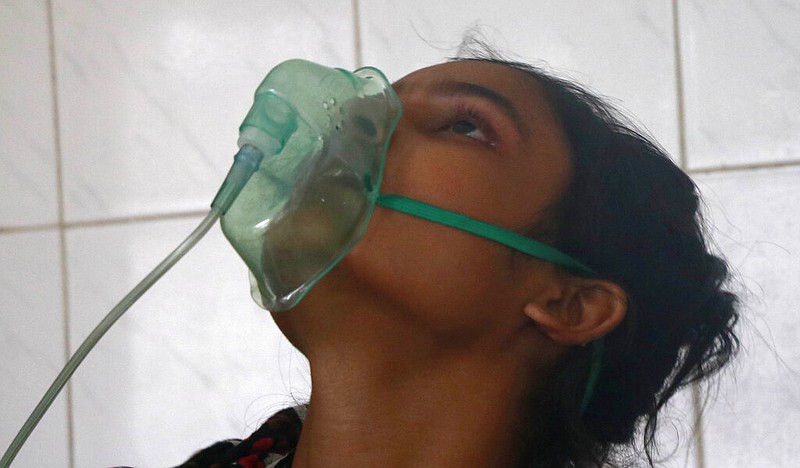Since the onset of the pandemic in March 2020, a number of variants of covid-19 have emerged globally.
Viruses naturally mutate, with some mutations dying off and others surviving. Such structural changes can make them more infectious and more deadly.
[CORONAVIRUS: Click here for our complete coverage » arkansasonline.com/coronavirus]
Scientists monitor the emergence of variants of interest, which become variants of concern when it is determined that the new strains are more contagious or otherwise affect people differently from previous strains.
Variants of concern have emerged in Brazil, the United Kingdom and South Africa.
The delta variant was identified in India in December 2020 and was first detected in the U.S. in March, according to the U.S. Centers for Disease Control and Prevention.
It was first detected in Arkansas at the beginning of May, according to the state Health Department, which conducts genetic sequencing of samples of the virus on a routine basis to determine which variants are making inroads.
The sequencing of the covid-19 positive samples can take from about a week to nearly a month, depending on where the samples are sent and national backlogs.
Researchers are particularly concerned about the delta strain because it is highly transmissible, said Dr. Jennifer Dillaha, the Arkansas Department of Health's epidemiologist.
"The delta variant is multiple times more contagious than what we were used to in Arkansas," Dillaha said.
Doctors said anecdotal evidence suggests that those who are infected with the delta variant display different symptoms compared with earlier strains.
Individuals are not tested for a particular strain. Covid tests return either a positive or a negative for the virus overall.
People might feel like they have seasonal allergies, develop a sore throat or a runny nose. Authorities also say that patients appear to be getting sicker more quickly compared with before.
The variant also appears to affect young people more so than older adults, but that could be because fewer young people, particularly children, are vaccinated.
Unvaccinated individuals should continue to wear masks, social distance and practice other safety guidelines to help avoid exposure. Those who are vaccinated should still be cautious but, so far, vaccines are proving effective in combating the delta strain.
"In general, the vaccines that are available here in the United States are effective against all of the variants," said Dr. Ryan Dare, an infectious disease specialist at the University of Arkansas for Medical Sciences Medical Center.
The World Health Organization recommended that fully vaccinated individuals continue to wear masks and social distance as the delta variant spreads. The CDC has yet to make such a recommendation.
Patients who may become infected with the delta variant are not treated differently from patients with the initial or other strains.
"Sequencing of the virus is not routine for patient care," Dare said. "So we rarely, if ever, have information on which variant we have with a patient in the hospital. Some patients find out later the delta variant was responsible for their infection."
The Arkansas Department of Health is conducting training to encourage increased use of monoclonal antibodies, a treatment used in early stages of covid infections that can prevent serious illness.
The state Health Department selects samples for genetic sequencing from people who become ill who have been fully vaccinated, called breakthrough cases, a spokesperson said via email.
"We also select samples from outbreaks and people admitted to the hospital," the spokesperson said. "We are developing a systematic way of collecting samples to get an overall picture of where variants are spreading in the state."
The samples are sent to the CDC, the University of Minnesota Genomics Center and private labs, according to the Health Department.

